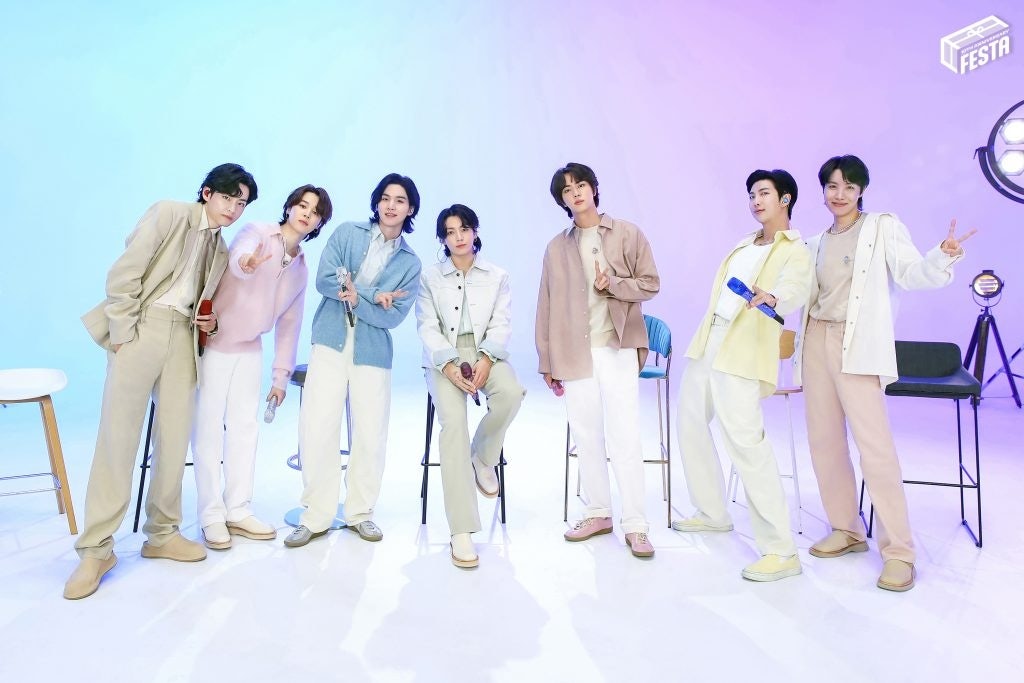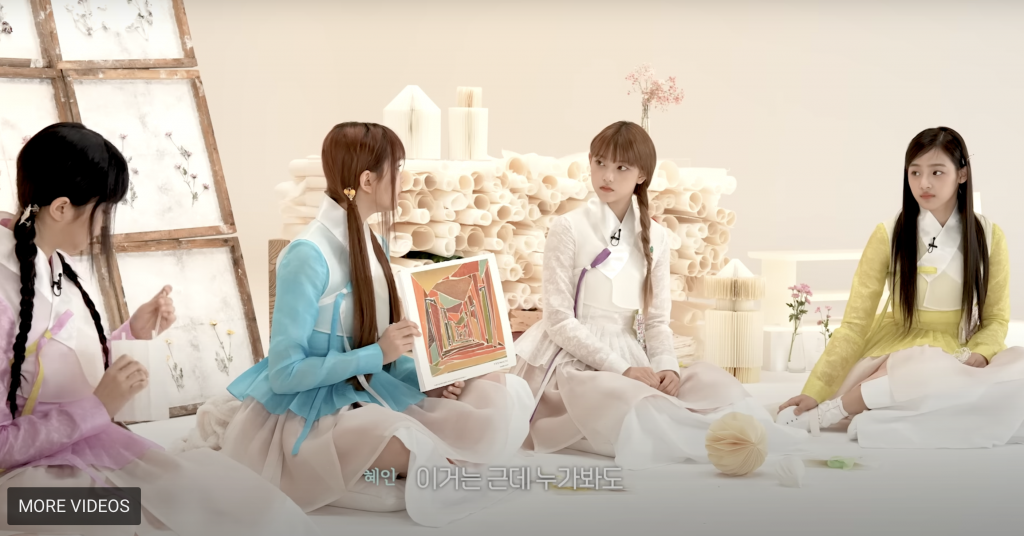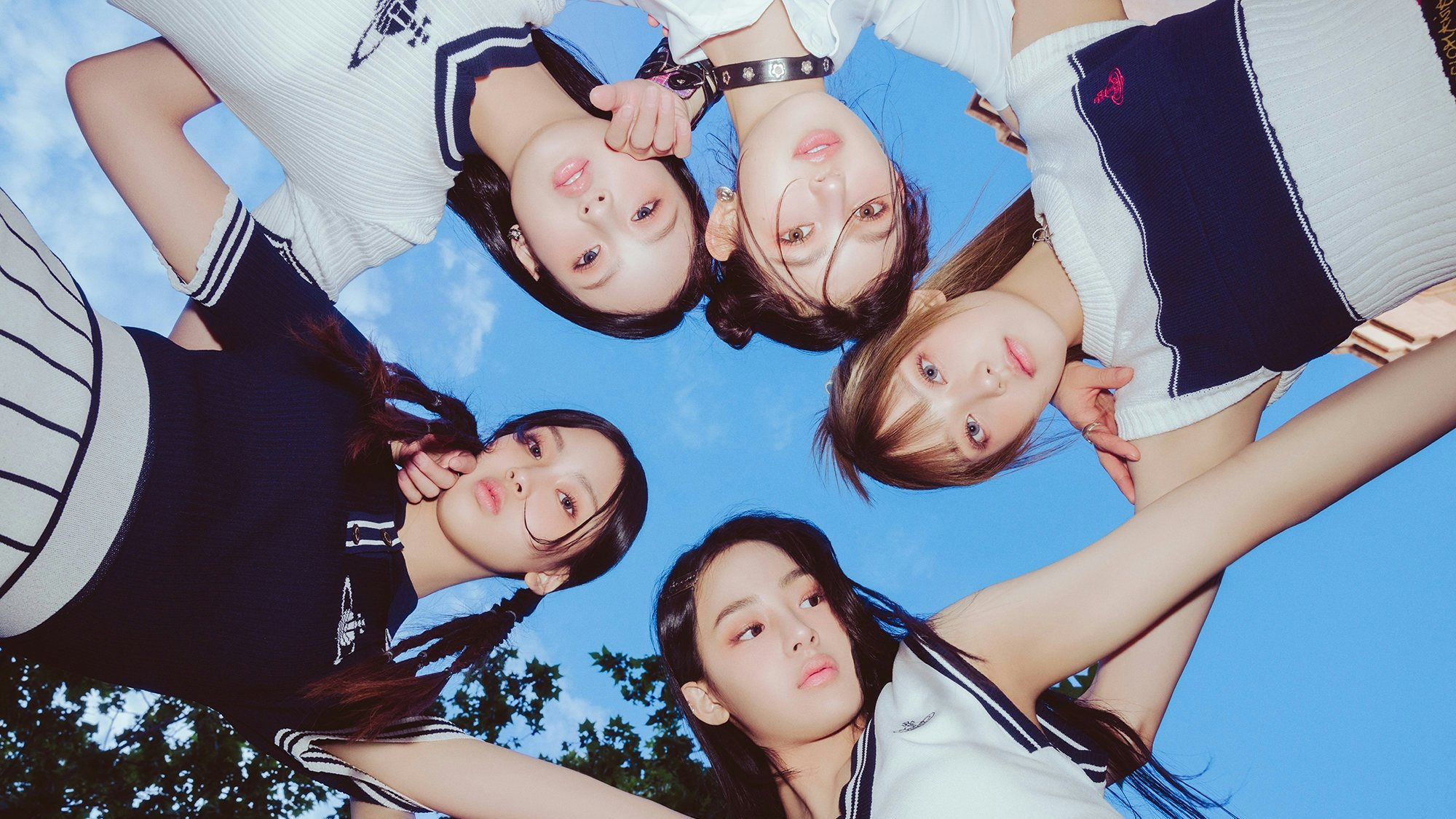From Taiwanese singer Jolin Tsai to musicians Liu Shuang and Yuan Yawei, a multitude of Asia's biggest names in music and entertainment converged at the 2023 Tencent Music Entertainment Awards show for the first time in years, following China's post-pandemic reopening.
The awards show, held in Macau on July 8 and 9 this year, was a spectacle featuring Chinese celebrities and influencers. However, all attention turned to K-pop group Le Sserafim when it took to the stage for its performance.
The act was predictably upbeat, catchy, and vibrant, but the real surprise was that Le Sserafim had been able to appear at the event in the first place.
Comprising Japanese members Sakura and Kazuha; and South Korean members Kim Chaeowon, Huh Yun-jin and Hong Eun-chae — Le Sserafim is among the few South Korea-founded pop outfits to have been able to perform for Chinese fans in recent years.
Tough ties#
Simmering geopolitical tensions between China and South Korea since 2017 have long made it challenging for K-pop groups to tour the mainland. Beijing has effectively (but unofficially) banned South Korean cultural content, including K-dramas, K-pop, and K-beauty products, due to its opposition to the installation of Terminal High Altitude Area Defense (THAAD) missiles on an American military base in South Korea.
Consequently, K-pop groups have been denied entry to perform and attend events such as fan meet-and-greets in China. Some artists have voiced their frustrations.
"I can't perform in China," said BTS' Suga during a live broadcast in June. "I've seen instances where Chinese members are allowed to work in China, but the K-pop group itself is not allowed."
However, with China's reopening in recent months, there is hope among K-pop outfits and their management firms for a potential partial or full lifting of the ban. In March this year, China's Ministry of Culture and Tourism announced that it would start accepting applications from foreign acts to visit and tour the country, though it did not explicitly state whether South Korean acts would be welcomed again.
Meanwhile, developments like the launch of a new music distribution deal between Tencent Music and Hybe, best known for managing K-pop groups like BTS and NewJeans, aim to make the music of their artists available to nearly 600 million monthly users of China's streaming music services, including QQ Music and KuGou.

Yet, even if K-pop were to fully return to China, a pertinent question arises: would Chinese consumers still be enthusiastic?
K-popping the big question#
Recent reports indicate an overall drop in Chinese consumption of South Korean products, as perceptions of "brand Korea" have shifted.
A survey conducted earlier this year by the Korea International Trade Association revealed that only 43.1 percent of the 1,000 Chinese nationals surveyed had purchased South Korean products within the past five years, compared to 78.7 percent in 2020. Younger Chinese consumers, in particular, exhibit less inclination to buy South Korean brands, citing the country’s national image and a preference for products from other markets like Europe, the US, and Japan.
"The status of Korean products in the Chinese consumer market has plummeted due to the sharp drop in exchanges between Korea and China over the past three years," stated a representative from the Korea International Trade Association in a Korea Herald report in March.
Regional tensions and national rivalries also pose challenges for even the biggest K-pop outfits.
In January this year, K-pop girl group NewJeans faced controversy when it appeared in a South Korean government-sponsored video promoting the art of traditional paper-making. Chinese netizens were outraged when the group spoke about South Korea's hanji or traditional paper tradition, claiming that Koreans were staking a claim over a Chinese invention (paper is considered one of China's "four great inventions").

"China is a huge market for K-pop and Korean cultural products, but the THAAD controversy and consequent issues between the two countries have severely curtailed the growth of sales in the Chinese market," says CedarBough Saeji, an assistant professor of Korean and East Asian Studies at Busan National University.
Slow trickle?#
Earlier this year, China “quietly” launched its first K-drama series in years on the state-owned streaming platform Streamer Mango TV. The release of the TV show Saimdang, Memoir of Colors, starring renowned actress Lee Young-ae, was deemed a symbolic moment in China and South Korea's strengthening ties.
However, some critics say even if South Korean content were to continue making a comeback, China now boasts a plethora of its own offerings — with the arrival of Chinese K-pop idols such as Jackson Wang (formerly of GOT7) and Victoria Song (a member of f(x),) who have moved notably moved their home base from South Korea to mainland China.
As Saeji, the Busan National university academic points out, Chinese consumers have been encouraged to invest in local cultural content as numerous local groups, dramas, and products have emerged.
Since 2017, China has produced its own versions and iterations of South Korean shows, including Running Man (known as Keep Running in China), I Am a Singer, and other reality TV shows.

On Chinese social media platform Xiaohongshu, user Sky (空) stated, “Recent K-dramas have been a bit boring. It's either about revenge or chasing serial killers. I've started watching C-dramas instead.”
“Regardless of the plot, you can always tell that C-dramas are made by Chinese people,” another user Will (威尔) commented. “[But] watching K dramas feels like watching replicas on an assembly line — they're beautiful but lack soul.”
Overall, Chinese cultural content has caught up to the global standard, and the large media market in China supports an enormous diversity in exciting musical scenes, says Saeji, the academic. "Chinese consumers are now aware of many local options, and Korean content no longer seems to offer something that is better than what one can find in China."
Additional research by Huiyan Chen.


